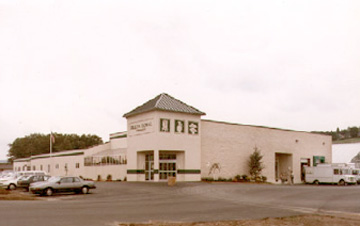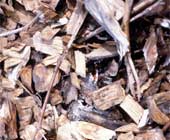CASE STUDIES
 Dillon Floral Corporation
Dillon Floral Corporation
- Biomass Heating System Greenhouse Operation, Bloomsburg, Columbia County
- System Size/Type: 6 MM Btu/hr 100 psig Steam Wood fired boiler system
- Fuel Type Past: #6 heating oil
- Fuel Cost Savings:: > $191,000 PER YEAR
- Fuel Type Current: Various clean wood chips
Economic Benefit:
Dillon Floral Corporation’s annual winter heating requirement is 22,000 MM Btu, or the equivalent of 145,152-gallons of #6 heating oil. Based on #6 heating oil quotes received during the 2007-2008 heating season, this cost would have exceeded $250,000.
In its first full winter, Dillon Floral burned 2,347 tons of wood chips, at an average delivered cost of $25/ton, equating to $58,670. By making the conversion from #6 heating oil to a biomass heating system, Dillon Floral saved approximately $191,330 in heating costs.
In addition to their annual energy savings, the costs incurred by purchasing wood chips will be dispersed to various wood chip suppliers in their immediate area, lending directly to the local economy.
Environmental Benefit:
By utilizing a biomass heating system, Dillon Floral sees various environmental benefits, such as employing a renewable fuel source that is produced in PA and is locally available.
Additionally, by using wood chips as an energy source, Dillon Floral will be displacing approximately 145,152-gallons of #6 heating oil with a carbon neutral wood fuel; and will have 100% reduction in emissions of both sulfur dioxide, eliminating up to 23-tons annually and CO2, eliminating up to 1800-tons annually. Large CO2 reductions are possible, because wood is considered to be a carbon neutral fuel. This simply means that the amount of CO2 emitted is offset by the amount of CO2 sequestered. Furthermore, making use of biomass wood chips utilizes right-of-way clearings and other tree-trimming waste that is normally left to decompose or is sent to local landfills.
Job Stabilization/Creation:
In taking the steps to implement this biomass heating system, Dillon Floral is able to maintain their niche in producing premium Pennsylvania-grown, cut flowers. This, in turn, has resulted in the retention of 28 jobs that would have otherwise been lost.


